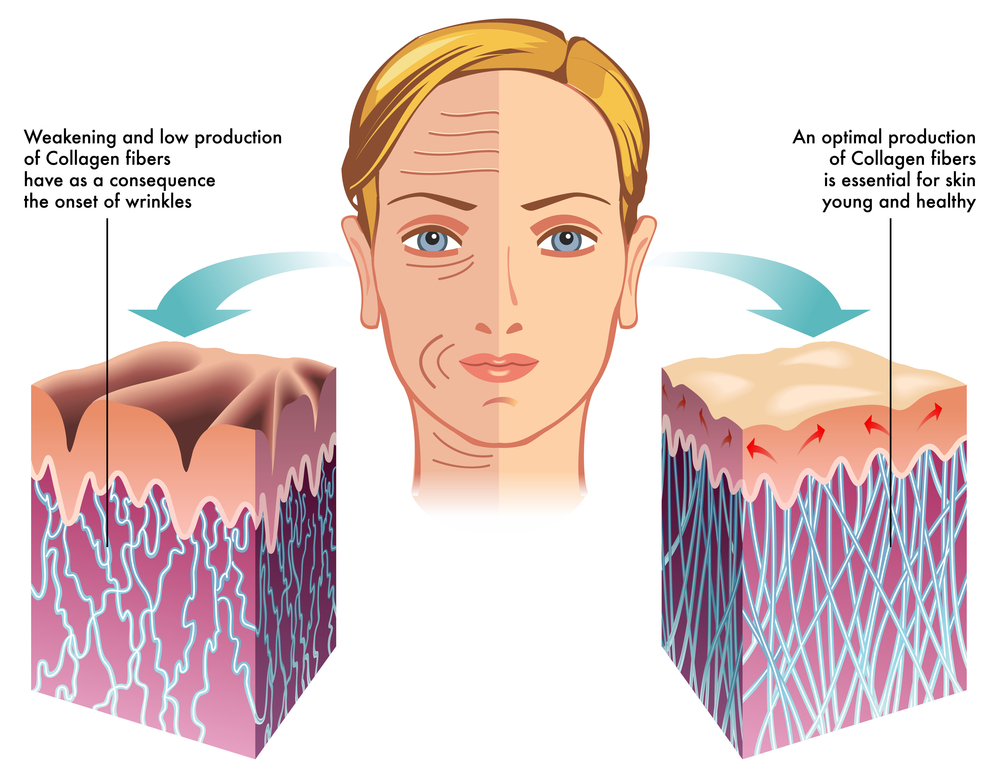Do you love tomatoes? If not, after hearing about the incredible antioxidant capabilities of lycopene, you will. Lycopene is cancer-preventative phytonutrient — an antioxidant with a laundry list of amazing benefits.
It’s most commonly found in tomato nutrition, but you can consume it in a number of common fruits and veggies. It has some properties in common with beta-carotene, although they’re not identical.
As a pigment in food, lycopene is responsible for the red color of tomatoes, although not all red fruits and vegetables contain this antioxidant. It’s even registered as an official food coloring in the U.S.
In fact, lycopene is not soluble in water and is responsible for staining a lot of cookware the orange color you often find after making spaghetti sauce. While the staining may be tough to scrub clean, it’s worth the effort because this amazing phytonutrient has a host of impressive benefits.
What Is Lycopene?
This incredible little molecule was first isolated in 1910, and the full molecule structure was discovered in 1931. So what exactly is lycopene? First of all, lycopene is a phytonutrient. Put simply, phytonutrients are antioxidants found in plant life.
These nutrients are not originally created by the human body, but rather produced by plants as a defense against environmental damage, such as pests, toxins and UV damage. Instead of allowing free radicals to run free within the plant, it creates various types of phytonutrients to protect itself.
Just like plants, we’re subjected to a lot of dangerous environmental chemicals and other things, like prolonged sun exposure, that can cause free radicals to damage cells throughout our entire bodies as well. That’s why it’s so important to “eat the rainbow.” If you regularly eat plants of all colors, you can ensure you get enough phytonutrients to keep your body healthy.
There are more than 25,000 different kinds of phytonutrients found in plant foods, and one of the top five important classes is carotenoids. Carotenoids both help plants absorb lights and protect chlorophyll from UV damage. Of the 600 different types, lycopene makes this top five as well.
Like other carotenoids, lycopene is a fat-soluble nutrient, meaning it’s absorbed better when consumed alongside fats, such as avocados, olive oil or seeds. The food with the highest concentration of lycopene is the tomato, although it can be found in many other plant foods as well.
Meanwhile, it’s not as beneficial as you might think to run to the nearest store for lycopene supplements, although they do exist. There are multiple molecular compounds similar to lycopene that can mistakenly be marked as lycopene supplements, and because supplements aren’t accompanied by the same other compounds as they are in food, you won’t get the most effective benefit.
Lycopene vs. Beta-Carotene
There are other carotenoids that are popular in research and health study. One such carotenoid is beta-carotene, and it has some similarities and some differences to lycopene that are important to note.
- Both are antioxidants.
- Beta-carotene is a precursor to vitamin A. Lycopene is not a precursor to any vitamins.
- Lycopene has not been proven to have lasting or permanently damaging side effects from overconsumption. Vitamin A from beta-carotene, however, is toxic, although this is only true in cases of over-supplementation, not in dietary intake.
- When consumed dietarily, the body can filter out all unnecessary lycopene and beta-carotene.
- Both have anti-inflammatory and anti-cancer properties.
- Both protect against cognitive decline and eye disease.
- The highest concentration of lycopene can be found in tomatoes. In peppers, you’ll get the most beta-carotene per serving.
- Beta-carotene supplements can negatively interact with a number of medications, including statins, orlistat, some cholesterol-lowering drugs and mineral oil. Lycopene has potential complications when combined with blood thinners, fertility medications, nicotine and several other classes of dangerous drugs. There is a suggested link between high beta-carotene levels and smoking-related cancer incidence. There is no known link between lycopene and higher cancer risk.
Purium Products with Vitamin A:
- Carrot Juice Plus
- Daily Fiber
- Green Spectrum
- More Greens
- Power Shake
- Spirulina Powder
- Super Meal
- ZinC-ADE
Lycopene Health Benefits
One of the biggest benefits of lycopene is that it is an antioxidant and protects the body from free radical stress that can damage DNA and other cell structures.
The antioxidant properties help balance free radical activity in the body4and, in doing so, may reduce the risk of certain diseases. For example, there’s emerging evidence that lycopene has a role in supporting the health of your bones.
While there may be additional benefits of lycopene related to heart health and cancer prevention, there’s not enough evidence to support these benefits at this time.
Bone Health
There is growing evidence that lycopene has the ability to help maintain bone strength. In a clinical study, lycopene was shown to affect bone metabolism (the constant production and breakdown of bone tissue).The authors found that lycopene changed the activity of multiple genes that support bone density, which provides strength to bones.
Additionally, the authors carried out a low-quality pilot (small-scale) study with 68 women. The study supported that supplementation of tomato sauce, which is high in lycopene, can help retain bone strength. This research is exciting, but larger studies are needed to confirm these results.
Cancer
Lycopene is an antioxidant. In theory, antioxidants could protect against cancer by preventing damage to DNA and cell structures. Unfortunately, the current research on lycopene is too limited in quality to ensure that lycopene decreases cancer risk.
Research has shown that higher lycopene levels strongly correlate (have a mutual relationship) with a reduced risk for prostate cancer. For example, a meta-analysis (a merging of findings from many studies) showed that participants who reported higher lycopene intake and had higher blood levels of lycopene were at lower risk of prostate cancer.
Also, as lycopene intake and levels in the blood increased, cancer risk decreased further. This has also been found to be true in epidemiological studies (studies on human populations) of lycopene intake and a reduced risk of head and neck cancers.
However, there’s currently no evidence that the lycopene itself is directly causing this reduced risk. For example, it’s known that eating more fruits and vegetables overall is associated with a reduced risk of cancer. Other behaviors that support health may also coincidentally occur in people who eat enough lycopene.
To illustrate, studies have shown that those who eat more fruits and vegetables are also less likely to drink alcohol. Drinking more alcohol than the recommended daily amounts has increased the risk of certain types of cancer.
High-quality research is needed to show that lycopene and its antioxidant abilities can directly impact the development of prostate and other cancers.
Heart and Vascular Health
Higher lycopene intake and blood levels correlate with a reduced risk for stroke. However, there’s little evidence that lycopene is directly causing this reduced risk. It’s essential to manage blood pressure and cholesterol well to support good heart and vascular (cardiovascular) health.
There’s mixed research on whether there could be an effect from lycopene for these conditions. A meta-analysis from 2020 confirmed that existing research does not support a relationship between lycopene and blood pressure or cholesterol levels.
However, more evidence is emerging that supports lycopene’s role in keeping blood vessels healthy. In a clinical study, lycopene benefited endothelial function. “Endothelial function” refers to a set of factors related to the health of the inner lining of blood vessels.
Interestingly, this improvement was only seen in people with cardiovascular disease, not in healthy participants. There will need to be more research in this area before we can be sure whether lycopene has benefits for cardiovascular health or not.
Other Uses
Lycopene has also been studied for use in:
- Oral leukoplakia (mouth lesions)
- Metabolic syndrome (collection of symptoms—high blood sugar, blood pressure, and cholesterol levels, excess body fat around the waist—that may increase disease risk)
More study is needed, however, before recommendations may be made for use of lycopene for these conditions.
Best Foods for Lycopene
While most studies focus on the high lycopene content in tomato nutrition, there are several foods high in lycopene content that you can introduce into your daily diet.
- Tomatoes
- Gac (a Vietnamese fruit)
- Watermelon
- Grapefruit
- Guavas
- Papaya
- Asparagus
- Red Cabbage
- Mango
- Carrots
What Are the Side Effects of Lycopene?
Though lycopene has health benefits, it can still cause undesirable effects. There is, however, limited research on the side effects of lycopene. Eating or supplementing with large amounts of lycopene could lead to a condition called lycopenemia.
Lycopenemia results in an orange or red discoloration of the skin and resolves after eating a diet low in lycopene. It’s considered to be relatively harmless. If you do not feel well after taking lycopene, stop the supplement and reach out to your healthcare provider.
Precautions
While lycopene is generally safe for use, lycopene supplements should not be used without first speaking with a healthcare provider.
Lycopene supplements should generally be avoided during;
- Pregnancy: If you’re pregnant, lycopene supplementation may contribute to preterm labor and a low-birthweight baby. Avoid lycopene supplementation if you’re pregnant unless recommended by your healthcare provider.
- Breastfeeding: Lycopene transfers from breast milk to babies. There is currently not enough research on the effects of lycopene supplementation on breastfed babies. Supplementation of lycopene should be avoided unless discussed with your healthcare provider and your child’s pediatrician.
- Surgery: Lycopene may inhibit blood clotting, increasing the risk of bleeding during and after surgery. Stop lycopene supplementation at least two weeks before surgery and discuss lycopene supplementation with your surgeon.
Dietary supplements are not regulated in the United States, meaning the Food and Drug Administration (FDA) does not approve them for safety and effectiveness before products are marketed. When possible, choose a supplement that has been tested by a trusted third party, such as USP, ConsumerLabs, or NSF.
Keep in mind, though, that even if supplements are third-party tested, that doesn’t mean that they are necessarily safe for all or effective in general. It is important to talk to your healthcare provider about any supplements you plan to take and to check in about any potential interactions with other supplements or medications.
How Much Lycopene Should I Take?
While there is not a formal recommendation for lycopene intake, 2 to 75 milligrams per day has been commonly studied and proven safe. The length of use in studies is usually one to six months. Lower doses are less likely to cause the benign skin condition, lycopenemia, discussed above.
Lycopene is fat-soluble, meaning that it is better absorbed in the gut when taken with fat. As such, you should take lycopene supplements with meals that contain reasonable amounts of healthy fat, such as those from nuts, fatty fish, eggs, avocado, or olive oil.
What Happens If I Take Too Much Lycopene?
There are no known immediate side effects of taking too much lycopene. With long-term lycopene supplementation, you may develop the benign skin condition lycopenemia. This results in a yellow or orange skin tone that resolves after following a diet lower in lycopene.
Interactions
Be aware that lycopene competes with other carotenoids for absorption into the gut. Therefore, taking a lycopene supplement with lutein, beta-carotene, or another carotenoid supplement, may result in decreased absorption. Other supplements, such as calcium, can also reduce absorption.
Antiplatelets: Lycopene may inhibit blood clotting, which could increase the risk of bleeding during and after surgery. Use caution when using lycopene with other medicines, including herbal preparations and plant-based medicines.
Anorectic drugs: Theoretically, drugs that decrease food consumption (anorectic drugs) overall may decrease lycopene intake.
Lipase inhibitors: Lipase inhibitors, which decrease fat absorption, may also impact your body’s ability to absorb lycopene.
Final Thoughts
Lycopene is a powerful antioxidant that can protect and repair the body from damage caused by multiple diseases. You can get a great deal of it in your diet by consuming tomatoes, watermelon, and other common fruits and vegetables.
One of the best ways to ensure your body absorbs the highest lycopene content possible is to add heat and healthy fats to tomatoes, such as making homemade tomato sauce for pasta. The change in lycopene molecules this causes (from linear to bent) can’t usually be found in commercially produced pasta sauce.
It’s best to consume lycopene foods. Supplements are often not what you would expect, they’re more likely to cause negative drug interactions and they won’t yield the same results as dietary lycopene.









